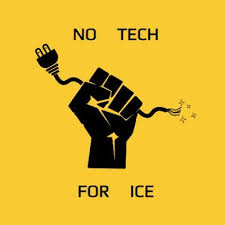- About
- Topics
- Picks
- Audio
- Story
- In-Depth
- Opinion
- News
- Donate
- Signup for our newsletterOur Editors' Best Picks.Send
Read, Debate: Engage.
| February 04, 2020 | |
|---|---|
| topic: | Digital Rights |
| tags: | #Africa, #human rights, #AI, #digitalisation, #Internet of things (IoT) |
| located: | Nigeria |
| by: | Ndubuaku Kanayo |
Recently in Nigeria, one Kabiru Mohammed was arrested by security operatives for allegedly creating and circulating deep fake videos of a wedding ceremony between the president of the country and two female ministers.
The video went viral sometime between August and October the previous year, as it depicted people dancing in a ceremony, in what was peddled as a wedding ceremony between the sitting president and two female members of his cabinet.
A spokesperson to the state security service has since urged Nigerians to be more cautious so as to avoid sharing unverified videos and other manipulated subversive materials, capable of destabilising the society.
According to a recent report by non-profit research institute Data and Society, deep fake videos uses technologies like artificial intelligent systems and machine learning methods to manipulate human bodies, facial expressions and gestures.
Experts like Andrew Thompson, a political science professor at the University of Waterloo have raised alarm at the new development which gives digital computing,data storage companies and governments enough room to build their personal bias labels into parameters used in determining human variables, thereby infringing on the basic human rights of people.
Although these bias labels which form a larger part of the parameters might be unintentional with a lower probability of outcome, the fact that it could lead to error and misinformation in a long run has become a thorn in the flesh for human rights and a big headache for digital rights activists in particular.
Overtime, there has been well documented evidence of AI facilitating discrimination, aiding marginalisation and furling misinformation.
Given the error rates of AI and it's wrong application by humans for security and criminal profiling purposes in societies of the world today, analysts fear an increase in unlawful arrests and detentions, which is in itself, a violation of human rights.
In the United States of America, a recidivism risk scoring software, used to determine criminal offences and recommend jail sentences, was reported to have modelled and predicted criminal suspects in the US by falsely labelling more black defendants as high risk while suggesting higher bail conditions as a punitive measure.
Just some days back, social media giant Facebook in its fight against disinformation took down a network of accounts for what the company termed "inauthentic behaviour". These false profiles generated by AI was used for propaganda and misinformation purposes.
In an official statement credited to the company, "Some of these accounts used profile photos generated by AI and masqueraded as Americans" the statement states.
AI Simplifying Societal Processes and Making Life Easier
Since the advent of technologies that allow computer and machine to function in an intelligent manner, there has been an increased access to health care with a recent Google AI proving better at detecting cancer than doctors.
In a recent report by the United Nations, the world body attested to how the organisational application of artificial intelligence by more than 35 UN agencies was increasingly used to solve human most urgent challenges like climate change, natural disasters and other humanitarian crises in today's society.
The technology which has also helped governments in decision making and allocation of scarce economic resources have been widely criticised by activists and tech policy experts on the basis of data protection and privacy - two necessary human rights in the digital age.
Artificial Intelligence and the advocacy for Data Protection
Worldwide, tech companies and experts are becoming aware of the public focus on data privacy and surveillance issues even to the extent that Tim Cook, a proponent of the data privacy discussion, openly called for a US data privacy law" .
Our own information, from the everyday to the deeply personal, is being weaponized against us every day," Cook said at the European Parliament in October. "We shouldn't sugarcoat the consequences -- this is surveillance. This should make us very uncomfortable, it should unsettle us."
Digital human rights activists worldwide have also called on digital platforms, who serve as custodians keeping the data reserves of members of society, to protect data owners individually to avoid manipulation, misinformation and invasion of privacy.
As maintained by the secretary general of Amnesty International Kumi Naidoo, while lending his voice to a 60 page Amnesty report titled "Surveillance Giants" insisted on a legislation that controls and restricts the amount of personal data that is accessible to companies, advertisers and the public.
With the increased use of Internet of Things (IoT) devices and the constant storage of large data, analysts believe that the proliferation and gradual application of AI and big data in almost all sectors of human life poses a huge threat to data protection and privacy which make up human rights generally.
In his words, we are now trapped" The Amnesty International secretary said in a statement, either we submit to this pervasive surveillance machinery- where our data is easily weaponized to manipulate and influence us or forgo the benefits of the digital world". he concluded.
By copying the embed code below, you agree to adhere to our republishing guidelines.
